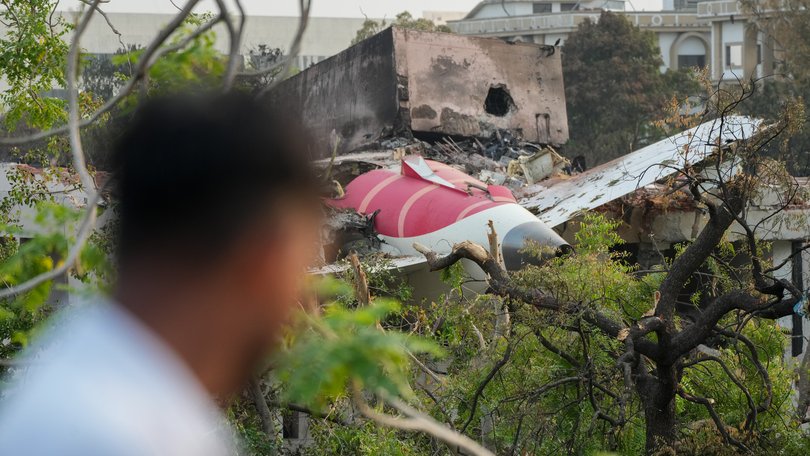Air India plane crash: India orders fuel-switch inspection on Boeing jets after report
India’s civil aviation authority has ordered an inspection of cockpit fuel switches on some Boeing jets following a preliminary report into the deadly crash of Air India 787 last month.

India’s civil aviation authority has ordered an inspection of cockpit fuel switches on Boeing Co. 737 and 787 aircraft operating in the country following a preliminary report into the deadly crash of an Air India 787 last month that was caused by a cut-off in kerosene supply.
The Directorate General of Civil Aviation asked operators to complete the inspections within a week to ensure continued airworthiness and safety of operation, according to a statement on Monday.
The report published late last week revealed that the fuel-supply switches on the doomed 787 aircraft were turned off immediately after the plane took off, and that pilots reversed that move about 10 seconds later.
Sign up to The Nightly's newsletters.
Get the first look at the digital newspaper, curated daily stories and breaking headlines delivered to your inbox.
By continuing you agree to our Terms and Privacy Policy.That proved too late to bring both engines back to full operation and led to the crash, killing 260 people on board the plane and on the ground in the city of Ahmedabad on June 12.
Investigators in the initial report said that they found no evidence so far that would require them to take actions over the Boeing aircraft or the GE Aerospace engines powering it.
The European Union Aviation Safety Agency said separately on Monday that it does not currently plan for mandatory inspections of the Boeing 787 model.
The fuel switches in the lower centre console are secured with a locking mechanism to avoid accidental movement, and the toggles are generally moved to their cut-off position when the plane is in park position or during an extreme emergency like an aircraft fire.
There was no mention in the report of any possible distress at takeoff, raising the question why one of the pilots decided to switch off the fuel supply - and then denying he had done so after being confronted by his colleague in the cockpit.
Air India Chief Executive Officer Campbell Wilson said in a memo to employees on Monday that the report “provided both greater clarity and opened additional questions.”
He also pointed out that the report found no mechanical or maintenance issues with the aircraft or engines, and that all mandatory inspections had been completed.
The airline had already inspected its fleet of Boeing 787 aircraft directly after the crash last month and found no anomalies.
Several Middle Eastern airlines have also started inspecting their Boeing fleets.
Oman Air has completed checks on fuel switches for around a dozen 787s and is now inspecting 737s in its fleet, while Saudia is checking its jets and said it complied with all Boeing recommendations. Jordan’s national carrier completed a visual check of the fuel switches on the 787 in its fleet.
--With assistance from Kate Duffy.
More stories like this are available on bloomberg.com
©2025 Bloomberg L.P.
